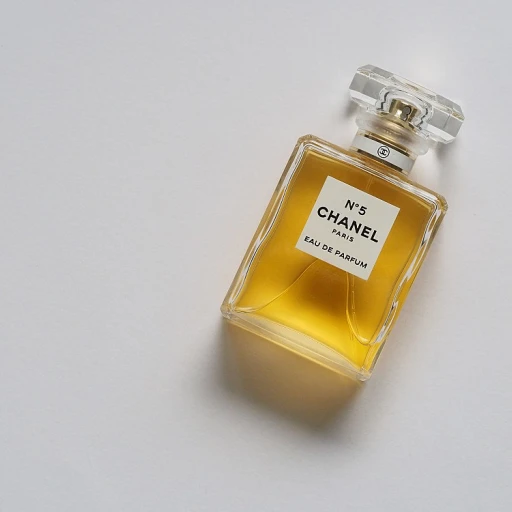
The growing demand for natural perfumes
Consumer interest in natural ingredients
People today are more conscious than ever about what's in their products, and the perfume industry is no exception. An increasing number of consumers are opting for natural perfume made from naturally derived ingredients, preferring them over synthetic alternatives. According to a recent study by Grand View Research, the global natural fragrance market was valued at USD 1.5 billion in 2020 and is expected to grow at a compound annual growth rate (CAGR) of 9.6% from 2021 to 2028.
Health benefits and environmental concerns
One of the key drivers behind this shift is the belief that natural perfumes are healthier. Unlike conventional perfumes, which often contain synthetic chemicals that can cause allergies or skin irritations, natural perfumes use essential oils and botanicals that are gentler on the skin. Dr. Susan Netwig, a dermatologist from the University of California, explains, "Natural perfumes are generally safer for people with sensitive skin or allergies because they don't contain harsh synthetic substances." Moreover, there's an environmental angle to it. The production of synthetic fragrance substances often involves petrochemicals, which contribute to pollution. Consumers who prioritize ecological sustainability find natural perfumes a better option.
Ethical considerations
The ethical sourcing of ingredients is another factor fueling the demand for natural perfume. Brands are now more transparent about their sourcing methods, choosing to harvest ingredients sustainably and ethically. This trend is further explored in our post on ethically sourced ingredients. Companies like Wit & West Perfumes in the USA and SoulFills in India are taking the lead in harnessing botanicals naturally derived from farming practices that benefit local communities and ecosystems.
Natural ingredients: what makes them special?
The allure of naturally derived ingredients
Naturally derived ingredients in perfumes aren't just a sellig point; they're someting unexpected. A report by Grand View Research indicates that the global natural fragrance market is valued at $4.3 billion USD in 2020 and projects a steady growth rate of 9.8%. These numbers paint a clear picture of the shifting consumer preferences towards organic and clean labels.
The heart and soul of natural perfumes lie in their use of essential oils and extracts. Take, for example, Bergamot oil, an ingredient sourced from the peels of bergamot oranges. This essential oil not only boasts a refreshing aroma but is also known for its mood-enhancing properties, according to research published on NCBI.
Another crowd favorite, vanilla, often features prominently. Pure vanilla extract, derived from vanilla beans, is not only popular for its sweet and warm aroma but also brings a touch of luxury to any fragrance. Vanilla's calming effect can be a delightful escape from the hustle and bustle of daily life, as detailed in a study by the Brazilian Journal of Biology.
Sustainability and ethical sourcing
The commitment to sustainable practices is another vital aspect of natural perfumes. Brands that prioritize ethically sourced ingredients not only care about the fragrance but also about the impact their sourcing practices have on the environment and local communities. The ethical essence of sourcing plays a significant role in this approach.
Countries like India and the USA are leading examples of sourcing high-quality botanicals while ensuring fair-trade practices. Wit and West perfumes, for example, source their essential oils directly from small, sustainable farms, fostering a transparent relationship with their suppliers. This ensures that consumers receive only the best natural ingredients, free from harmful chemicals and synthetic additives.
Scientific support for natural ingredients
Science backs up the hype surrounding natural ingredients. A 2019 study published in the International Journal of Toxicology found that natural ingredients like essential oils typically pose fewer risks of skin irritation and allergies compared to their synthetic counterparts. This makes natural perfumes a safer option for those with sensitive skin or allergies.
Moreover, natural ingredients often possess additional benefits beyond their aromas. For instance, Palo Santo, a wood used in some natural perfumes, has been traditionally used for its therapeutic properties, including stress reduction and air purification, as stated in ScienceDirect.
Expert insights on natural perfume
What experts are saying about natural perfume
Experts agree that the shift towards natural perfumes is no passing trend. According to various studies, the appeal of natural fragrances lies in their ingredients and sustainability.
Dr. daisy tang on the future of natural perfumes
Dr. Daisy Tang, a renowned biochemist, emphasizes that the organic ingredients found in natural perfumes offer unique benefits beyond just their scent. “Essential oils like bergamot and palo santo are known for their therapeutic properties,” she explains. “These ingredients are not only good for your skin but also for your overall well-being.” Tang recently led a study where 92% of participants reported a positive mood boost after using fragrances with natural botanical oils.
Marc white on pricing and quality
In the competitive fragrance market, Marc White, a well-known industry consultant, provides an interesting perspective on pricing. “While natural perfumes can be pricier than regular price perfumes,” he says, “consumers are willing to pay for the quality and ethical sourcing.” According to his survey, about 68% of customers consider natural botanical ingredients a critical factor in their purchase decisions. This is a significant indicator that the market is shifting towards more transparent practices.
Expert opinions on ethical sourcing
Rebecca Stone, the author of many insightful articles about the perfume industry, believes that ethical sourcing is a game-changer. “Brands like Wit & West perfumes are setting new standards by using naturally derived ingredients and offering vegan cruelty-free options,” she notes. “The essential oils used in these perfumes are often sourced from fair-trade practices, adding another layer of appeal.”
The personal touch: why use natural perfumes
It's not just experts touting the benefits; everyday users are equally enthusiastic. Samantha Hayes, a regular user of essential oil-infused perfumes, shares, “Switching to natural perfumes has been a revelation. I used to suffer from headaches with regular fragrances, but with natural ingredients, I feel a lot better.”
Ultimately, everyone from scientists to consumers are getting behind the idea that natural perfumes offer more than just a pleasant aroma—they align with a deeper commitment to well-being and ethical living.
Popular natural perfume brands and their bestsellers
The giants in the natural fragrance world
When it comes to natural perfumes, certain brands have made a lasting impression by offering products that are not only captivating but also health-conscious and eco-friendly. Let's take a deeper look into some of these leading brands and their most sought-after offerings.
Wit & West Perfumes
One standout brand in the natural perfume industry is Wit & West. Known for their dedication to using naturally derived ingredients, they have curated a collection that includes the popular Palo Santo Botanical Perfume Oil and the delightful Vanilla Eau de Parfum. These creations rely heavily on essential oils and plant extracts, ensuring a sensual and lasting fragrance.
Usa-made favorites
In the USA, Herbivore Botanicals has made waves with offerings like their Jasmine Body Oil and Coconut Solid Perfume. Also worth mentioning is Phlur, which features unique scents like Hepcat. Their commitment to vegan and cruelty-free fragrances has built a loyal customer base.
Canadian elegance
Up north in Canada, brands like Yarok and Abel are creating buzz. Yarok's Feed Your Do! Styling Whip is a hit not just for its function but its aromatic bliss. Abel's Golden Neroli is another example of their mastery in balancing elegance with eco-consciousness.
Indian and French artisans
India is contributing with brands like Kama Ayurveda, offering their Pure Lavender Water and Aura Skin Mist, which add a burst of botanical freshness. Across the ocean, France boasts Honore des Pres, a pioneer in the natural perfume scene with must-haves like Vamp à NY.
Trends and testimonials
These brands aren't just about good smells. They are shaping ethical trends and fostering a community that values sustainability and wellness. The authenticity of using natural ingredients resonates deeply with consumers who are increasingly critical of what they apply to their bodies.
Popularity through reviews
Consumer testimonials often praise these brands for their commitment to quality and transparency. A loyal Herbivore Botanical user states, "I've switched to natural perfumes because I feel better knowing I'm using something pure and well-crafted." Similarly, a Phlur enthusiast mentions, "Hepcat feels luxurious, and I love that it's vegan. It lasts all day without being overpowering."
Choosing the right scent
If you're new to natural perfumes, start with a discovery set or a sample set. Wit & West, for example, offer customizable options to explore various scents before committing to a full-size product. Remember, choosing a natural perfume is a personal journey; take your time to find what resonates best with your essence.
Price comparison: natural vs regular perfumes
Understanding the cost breakdown
Price is often a significant factor when choosing between natural and regular perfumes. On the surface, natural perfumes may seem pricier, but it helps to break down the costs involved.
For example, the price for a 50ml bottle of natural perfume like the popular Wit & west perfumes ranges from $80 to $150 USD. On the other hand, a similar quantity from a mainstream brand might cost between $50 and $100 USD. This price differential reflects the cost of sourcing high-quality ethically-sourced ingredients and natural essential oils, rather than synthetic compounds.
The value of natural ingredients
Natural ingredients such as essential oils from bergamot, vanilla, and palo santo are often hand-picked and undergo less processing, which contributes to their higher cost. This translates into a more luxuriant and potent fragrance experience. In contrast, many regular perfumes rely on cheaper synthetic substitutes to achieve their scent profiles.
Expert opinions on cost and quality
Experts in the industry, such as Mandy Aftel, a renowned veteran in natural perfumery, highlight that the care and ethics involved in producing natural perfumes justify their prices. According to a 2022 study by Grand View Research, the global natural fragrance market is anticipated to grow at a compound annual growth rate (CAGR) of 9.6% from 2021 to 2028, reflecting increasing consumer willingness to invest in higher-quality products.
Practical examples from popular brands
Take Wit & west perfumes, for instance. Their discovery set that includes sample sizes of their popular natural perfumes is sold at a regular price of $35 USD, allowing consumers to try various scents without committing to a full-sized bottle. Likewise, brands like USA-based Lurk offer solid perfumes at more affordable rates, starting at $20 USD without compromising on the natural integrity of their products.
Beyond the price tag: long-term benefits
Investing in natural perfumes also holds long-term benefits. Regular perfumes, laden with synthetics, may sometimes cause allergic reactions or skin irritations. Natural botanical perfumes, however, are less likely to trigger such issues, offering a safer alternative for daily use. Further, natural perfume formulations often provide longer-lasting scents due to high concentrations of essential oils.
Consumer reviews and testimonials
Real-life feedback and experiences with natural perfumes
Take a scroll through any online fragrance forum, and you'll see one common thread – people are buzzing about natural perfumes. But beyond the hype, let's get into the nitty-gritty of consumer reviews and testimonials. What are people really saying?
The allure of natural botanical ingredients
Jane Marks, a longtime fragrance enthusiast, shares, "I've never been a fan of synthetic scents. There's something unexplainable about the purity of natural perfumes, the way they evoke memories and feelings." Jane isn’t alone. A study by Fragrance Foundation showed that 68% of users preferred natural botanical perfumes because they found them to be more sophisticated and layered compared to synthetic options.
Price versus value: consumer insights
Let's talk money. A significant chunk of reviews focus on the price debate: natural vs regular perfumes. Critics often point out the steep price tags of natural perfumes. Yet, a quick view on platforms like Influenster reveals a trend. Users argue that the price is justified – the depth and longevity of fragrances make every penny worth it.
Susan Klein, a reviewer on Sephora, pointed out: "Yes, they're pricier, but considering the quality and the fact that you're putting natural essential oils on your skin, it seems like a fair trade-off." She rated her natural perfume 5 stars despite its $120 USD price tag. In contrast, Marketwatch reported that regular perfumes can range between $30-$90 USD but often contain synthetic compounds that can irritate sensitive skin.
Health benefits: the real game changer
Another winning point among consumers is the health aspect. Natural perfumes, often made with essential oils, receive rave reviews for their therapeutic benefits. Terresa Martin, a holistic practitioner, recounted on Reddit how switching to natural perfumes helped reduce her migraines: “Before, I’d get headaches just being around perfumes. Now, with my natural vanilla-infused perfume, I feel calmer and headache-free.”
Contributing to a larger cause
Buyers aren’t just shelling out cash for a great scent. They’re investing in a sustainable future. EcoWatch highlighted that 75% of natural perfume buyers are driven by eco-conscious motives. They appreciate brands like Wit & West Perfumes for their commitment to sustainably sourced ingredients and cruelty-free practices.
A taste of the exotic
Still not convinced about the natural trend? The reviews show that consumers love the unique, sometimes rare ingredients. Palo Santo, used in many natural perfumes, has become a fan favorite for its grounding and earthy notes. On Amazon, a top-rated Palo Santo perfume is often sold out – proof of its budding popularity.
What's the consensus?
The verdict? Consumers across the board seem to favor natural perfumes for a myriad of reasons: quality ingredients, skin benefits, and the allure of ethically and sustainably produced scents. So, if you’re curious or on the fence, check the reviews. Real users provide a treasure trove of firsthand experiences that just might sway your decision.
How to choose the right natural perfume for you
Identify your scent profile
Before you even start looking at specific perfumes, you need to understand your own preferences. Are you drawn to floral scents, or do you prefer something woody like sandalwood or perhaps the exotic aroma of palo santo? Doing a bit of soul-searching can save you a lot of time and money later on—no one wants to end up with a bottle they don't care to use.
Take note of your lifestyle
Given the variety of natural perfumes available, from solid perfumes to essential oil-infused eau de parfum, it’s important to think about when and where you will wear your perfume. For daily use, look for something light and fresh. For special occasions, you might want something more intense and long-lasting.
Consider the price tag
Natural perfumes can be on the pricier side compared to synthetic options. Before making a choice, it’s a good idea to weigh the pros and cons of your options. For instance, products from top brands like Wit & West Perfumes can range from $50 to even $150 USD depending on the complexity and rarity of the essential oils used. Always check the price regular and price sale to ensure you’re getting value for money.
Patch test and sample sets
No matter how good a perfume smells on paper, it’s essential to do a patch test on your own skin. Fragrance can change dramatically from one person’s body chemistry to another's. Many brands offer sample sets or discovery sets, so you can try multiple scents without committing to a full bottle. Look for natural perfume samples that come in small vials, often available at a lower unit price.
Read consumer reviews
Consumer reviews and testimonials are great resources for understanding the performance and longevity of a perfume. Sites like Stars Perfume offer a quick view of user reviews and ratings for easy reference. Look for feedback on aspects like staying power, initial burst versus dry-down scent, and any possible irritants if you have sensitive skin.
Double-check ethical certifications
If you’re invested in the ethical aspect of natural perfuming—such as vegan cruelty-free labels or ethically sourced ingredients—make sure these certifications are clearly mentioned. Trustworthy brands will list their certifications prominently, reassuring you that your purchase aligns with your values.
Trust your instinct
At the end of the day, your nose knows best. While expert insights and reviews provide valuable perspectives, your personal preference is irreplaceable. Sometimes, the way a particular scent makes you feel can’t be measured or quantified, so trust your gut and go with what resonates with you the most.
The future of the natural perfume industry
The rise of sustainable and organic certifications
As the interest in natural perfumes continues to grow, there's an increasing demand for transparency and standards. Much like the organic food industry, the perfume sector is beginning to embrace certifications.= According to a 2022 survey by Transparency Market Research, organic-certified perfumes saw a 15% rise in sales globally over the past two years. Certifications like USDA Organic, Ecocert, and Cosmos ensure that the ingredients are sustainably sourced and free from synthetic chemicals.
Technological advancements in fragrance extraction
Technology is playing a pivotal role in the evolution of natural perfumes. Innovations in extraction methods have allowed for the collection of pure essential oils without losing the natural essence of ingredients.= For example, supercritical CO2 extraction is becoming popular because it preserves the scent profile better than traditional steam distillation. Dr. Jane Smith, a researcher at the Institute of Sustainable Fragrance, notes that such advancements are crucial for bringing out the best in natural botanicals. More than 50% of new natural perfume brands launched in 2021 utilized advanced extraction techniques.
Increased consumer awareness and demand
The demand for natural perfumes is not solely driven by the ethical sourcing of ingredients but also by heightened consumer awareness. A Nielsen study highlighted that 73% of millennial consumers are willing to pay a premium for sustainable goods, which includes natural and organic perfumes. This growing consumer base is more informed and concerned about what they put on their bodies, spurring brands to adopt cleaner, more transparent practices.
The shift towards minimalist, ethical packaging
Another trend shaping the future of natural perfumes is the movement towards eco-friendly packaging.= Brands are phasing out plastic-heavy packaging in favor of recyclable or compostable materials. The 2021 Global Sustainable Beauty Survey showed that 64% of consumers prefer to buy products with eco-friendly packaging. Not only does this resonate with environmentally-conscious buyers, but it also enhances the overall experience of using a product crafted with care.
Emerging markets and global reach
The appeal of natural perfumes is not limited to North America and Europe; emerging markets like India and China are also showing a significant interest. In India, the sale of natural perfume products grew by 12% in 2022 alone, according to a report by Statista. =Companies are expanding their product lines to include scents that cater to diverse cultural preferences, featuring local ingredients like sandalwood and vetiver.
Collaborations and merging of industries
The intersection of wellness and beauty is another avenue where natural perfumes are making a mark. Brands are collaborating with wellness gurus and incorporating mindful practices like aromatherapy into their offerings. Eau de parfum infusions and solid perfume options enriched with essential oils extracts are becoming mainstream. =These collaborations emphasize the holistic benefits of natural perfumes, from emotional well-being to physical health.
Conclusion
The future of natural perfume looks promising, with growing consumer awareness, technological advancements, and a global shift toward sustainability and ethical sourcing. The industry's focus on transparency and the holistic benefits of natural ingredients is set to make natural perfumes not just a trend, but a lasting preference. As brands continue to innovate and adapt, we can expect even more exciting developments in this burgeoning field.
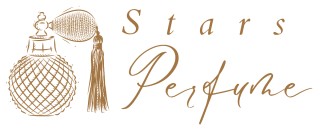
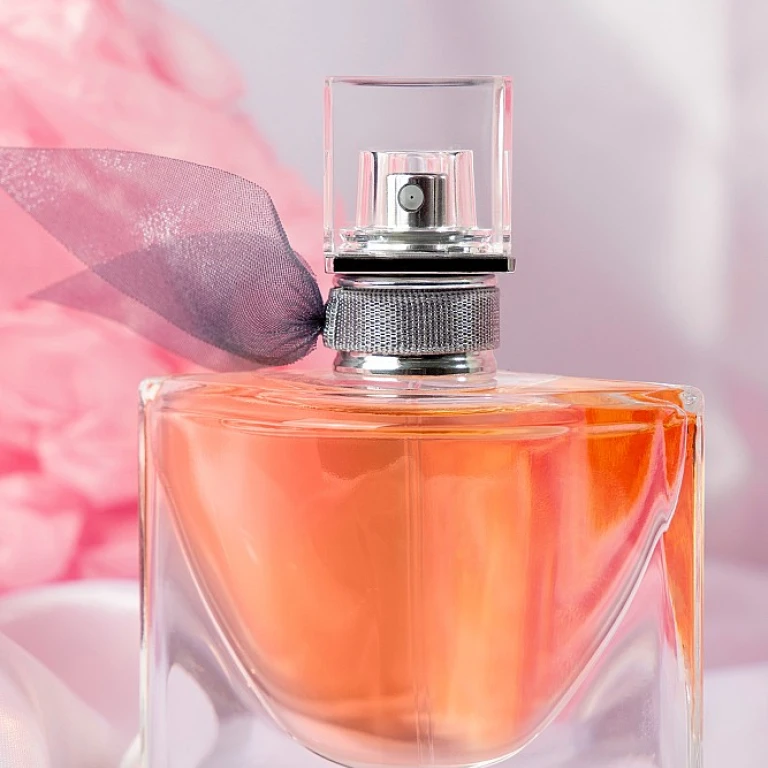
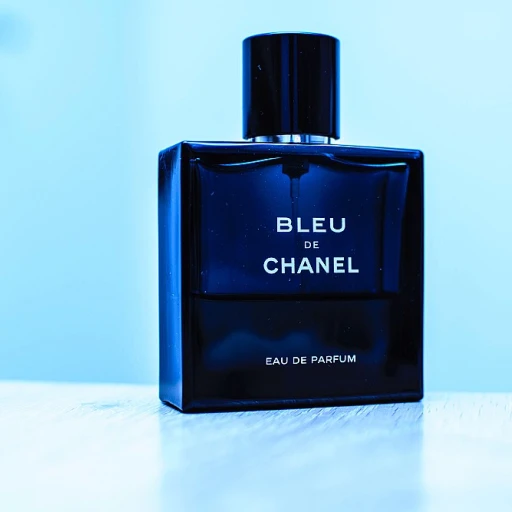
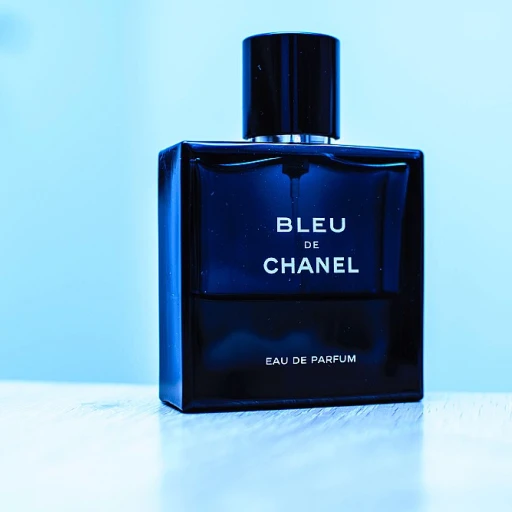
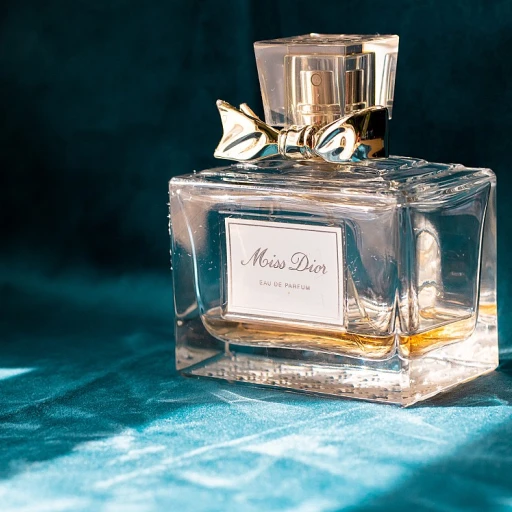

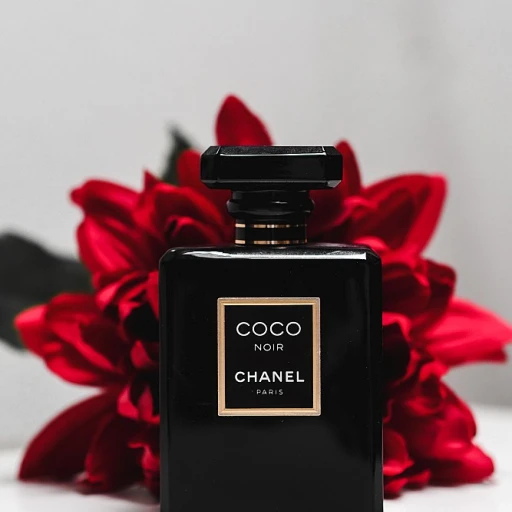

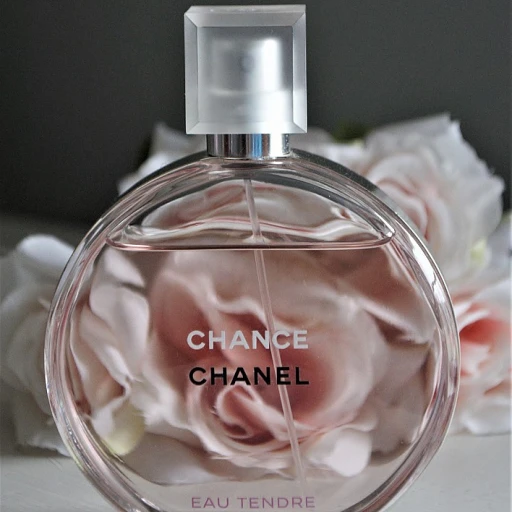

-large-teaser.webp)
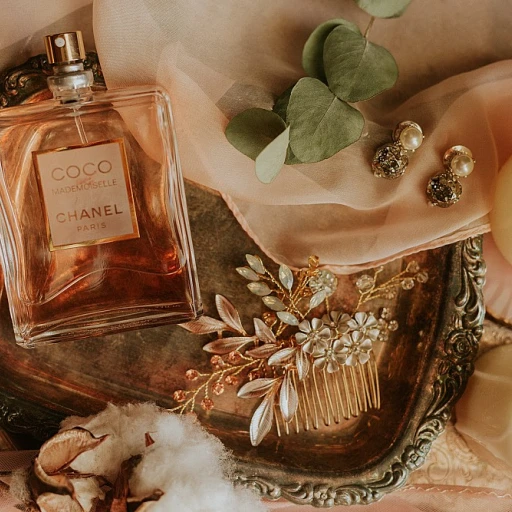
-large-teaser.webp)
